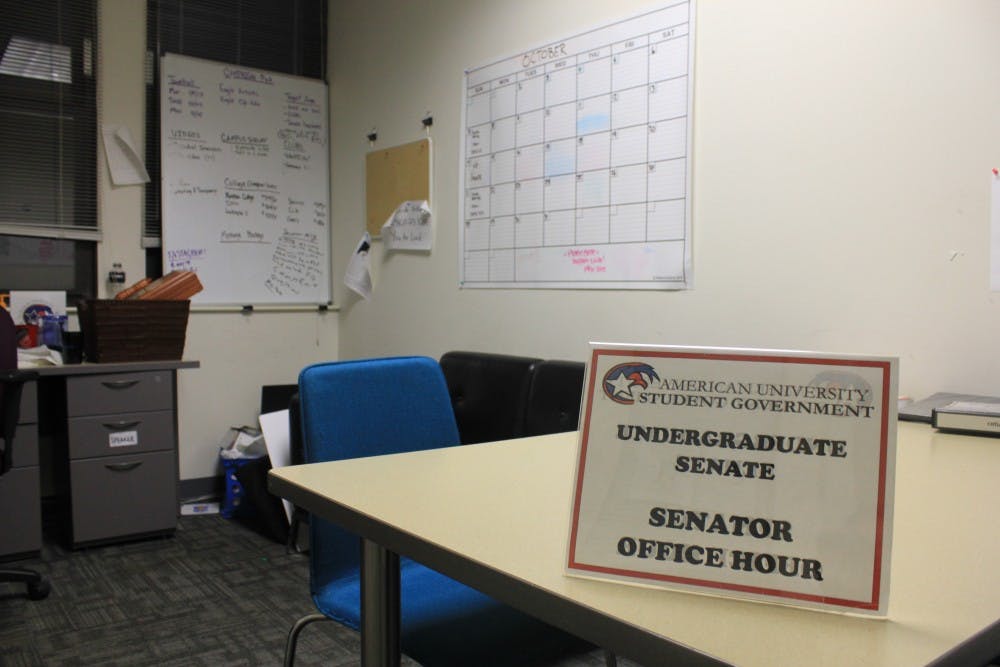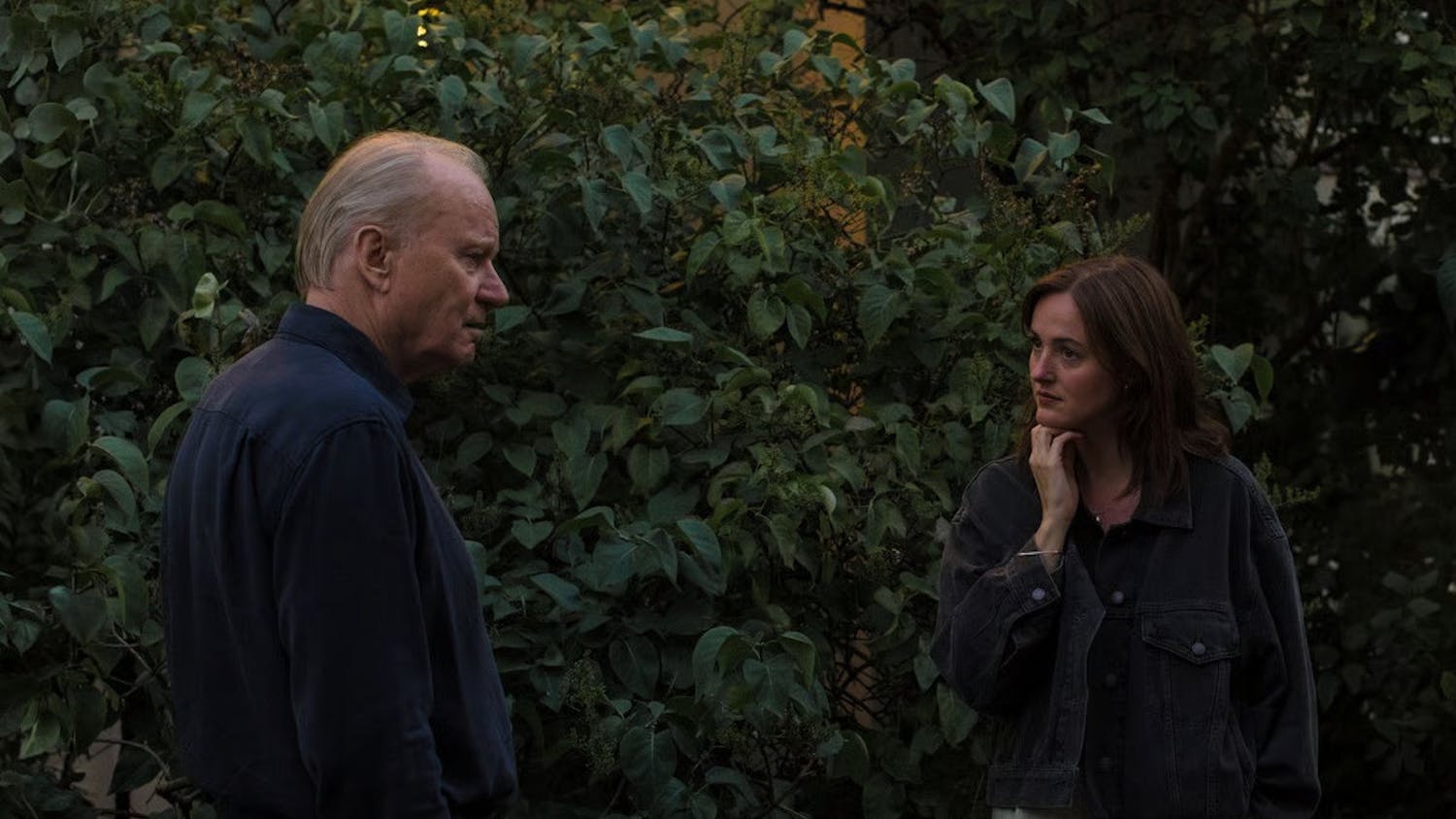Beginning on Oct. 22, AU Student Government will hold a student-wide referendum asking students whether or not they approve an increase to the student activity fee by $11.50 per semester.
The referendum, referred to by SG members as Amplify the Student Experience, was supposed to occur in the 2018 spring elections, but was pushed later to the fall elections, The Eagle previously reported. If approved, the referendum will increase the student activity fee from $88.50 for each student per semester to $100.
The student activity fee is built into every AU undergraduate student’s tuition, and goes towards funding student organizations on campus, The Eagle previously reported. The money from the fee is pooled together and split between Student Government, Student Media Board, and the AU Club Council (AUCC). SG is slated to take approximately 50 percent of the pool, while Student Media Board and AUCC take about 20 percent and 30 percent respectively.
But, in previous years, SG has taken slightly more than 50 percent, accounting for 56 percent of the budget in 2016-2017. This is due to a provision in the original agreement laying out the division of the student activity fee, which allowed for a deviation of approximately 5 percent.
The campaign for the referendum was launched on Sept. 12 via Facebook to spread the word to the AU community. According to the campaign’s website, the increase in the fee will “generate roughly $150,000 more for programs, speakers, club funding, and resources for student media organizations.” Junior Trevor Pugh, the speaker of SG’s senate, said that SG’s portion of the funds would primarily go toward programming and speaker events.
Voting for the referendum will be in conjunction with SG senate fall elections, opening on Oct. 22 at 12 p.m. and closing on Oct. 24 at 12 p.m. Students will be able to vote through their AU portals, as has been done in previous elections.
AUCC, which oversees and provides funding for student organizations that don’t fall under the oversight of SG or the Student Media Board, is supporting the increase. Brian O’Gara, the chair of AUCC, said his council’s entire budget is drawn from the student activities fee, so the choice to support the referendum wasn’t a very difficult one.
“We want to do our jobs in supporting student clubs on campus, and over the years our budget just hasn’t been enough,” O’Gara said. “Last year, we were more concerned than we had ever been. Funding requests from clubs have gone up but their budgets have remained the same, so we had to keep rejecting funding requests.”
For AUCC, the decision to support the fee came down to whether they wanted to either continue denying funding requests from more clubs or take more money in and be able to give more support to student organizations. But not all students on campus see the referendum in these terms.
“I think it's absurd they are doing this,” said senior Andrew Watring, artistic director of the theater group Rude Mechanicals. “SG has an enormous budget and clubs are floundering.”
Watring said he believes SG does not need extra funds and should have included all clubs on campus in making the decision to hold the referendum.
Junior Rianna Cranberg, a member of AU Improv, also opposes the fee raise.
“I think there are ways to find the money to increase the money available to student clubs without raising the fee,” Cranberg said. “AU has the money -- they just need to re-allocate it.”
One way that the fee could be reallocated is by not charging student organizations to rent out spaces on campus for various events that AUCC then needs to fund, Cranberg said.
“Improv rented the McKinley theater for two hours and it cost $300,” Cranberg said. “I understand charging money to outside groups using AU’s services but student groups shouldn’t be charged for holding events on our own campus, and that charge puts a strain on AUCC to fund the events, which goes back into AU anyways but doesn’t go back into the student activity fee.”
However, according to SG Vice President Leela Najafi, the lack of funds for student organizations has been a complaint for a while.
“For years, we've heard from students that there simply aren't enough funds available, now students get to choose whether this increase is the right way forward,” Najafi said.
Junior Zach Stahl, Secretary General and the head of the conferences arm of American University’s International Relations Society (AMIRS), said he supports the proposed fee bump as it would allow AMIRS to continue to function and hold programming that’s important to the organization.
“There’s 176 students in the AMIRS conference branch, and if it weren’t for AUCC, we couldn’t have put on our most recent conference,” Stahl said. “Just recently, we had to print out resumes for students applying to join AMIRS, and if it weren’t for AUCC we would have had to pay about $150 just to print everything out at the library.”
Stahl said that his branch of AMIRS received $4,731.85 from AUCC last year, which averages out to about $27 per member, which isn’t enough, he said.
The last increase of the student activity fee was almost five years ago, The Eagle previously reported. According to the campaign website, with rising inflation and an increase in student organizations, the current budget does not meet the demand for programming.
Junior Trevor Pugh, the speaker of the SG Senate, said that if the referendum passes and the fee increases, it would then go to the Board of Trustees for final approval. The board is the only body with the ability to raise the student activity fee, he said, so the referendum serves as a suggestion for the trustees’ next steps.
At a recent Senate meeting, Pugh told senators that increasing the fee would have a massive impact on what SG and other organizations are able to accomplish.
“[The increase] is basically the cost of a Cava bowl each semester, so it’s not that much in terms of each individual giving money, but the total amount of funding that we get from all the students is exponential,” Pugh said. “There’s so much more money to work with.”
Laura Romero contributed reporting to this article.
Correction: This article has been corrected to reflect that the Student Media Board receives about 20 percent of student activity fee funds, while the AU Club Council receives about 30 percent.





